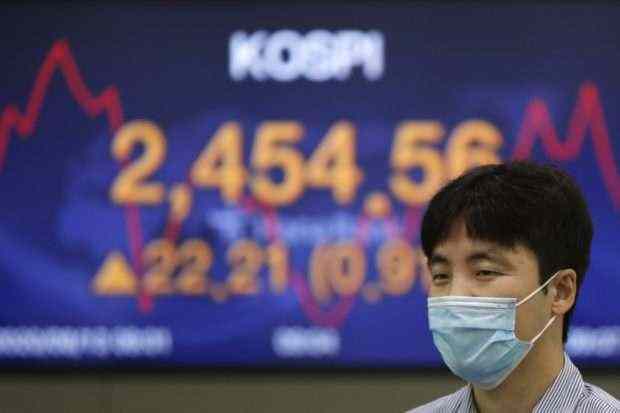Asian shares ease; greater flexibility expected from Feds

On Thursday, Asian shares had reached two-year peaks right after Wall Street’s record run with cheap cash driving up big-cap tech titans. While this is the case, China and the United States continue to stir tension as the session moved forward.
An increase of 0.1% was seen in MSCI broadest index of Asia-Pacific shares outside Japan. This came after it had reached its supposed highest back in August 2018.
Japan’s Nikkei (N225) eased 0.4% from mid-February levels, while South Korea (KS11) slid 0.8% owed to revitalized numbers of COVID-19 cases.
In light of military face-off in the South China Sea, with Washington blacklisting 24 Chinese companies and Beijing firing missiles in the territory, Asian investors became wary of taking risks.
While these are in the fold, global markets remain bent on limitless liquidity generated by central banks.
Jerome Powell, Chair to the Federal Reserve will be outlining a more pliable policy approach on Thursday. The approach will be including a shift to targeting a 2% average inflation rate that allows for constantly lower rates. Regarding this, senior NAB FX strategist, Rodrigo Catril had this to say:
“So with U.S.-China tensions seemingly not a major concern, the deluge of fiscal and monetary support remains the overriding tail wind for risk assets with large cap the beneficiaries,”
The hopes of the Fed easing further keeps the dollar at the defensive. Thursday had also seen the Greenback stuck at 92.916 (=USD) against a basket of currencies. It had come to the recent two-year trough of 92.124.
Against the Yen, the dollar backed off to a price of 105.96 yen from 106.57 earlier.
Of late, the dollar has been trending lower against the Chinese yuan to reach lows that had not been seen since mid-January with the value of yuan at 6.8809.

